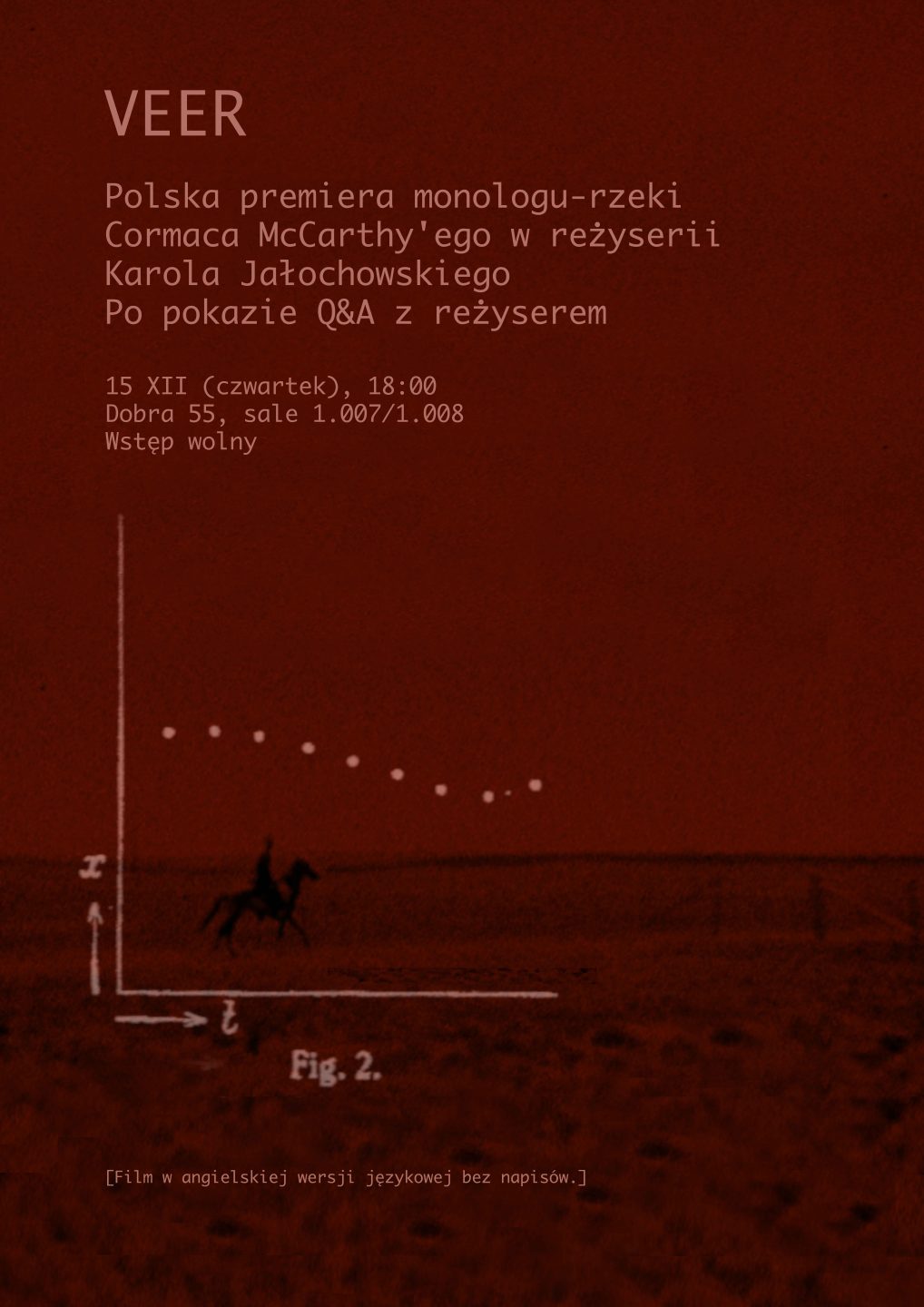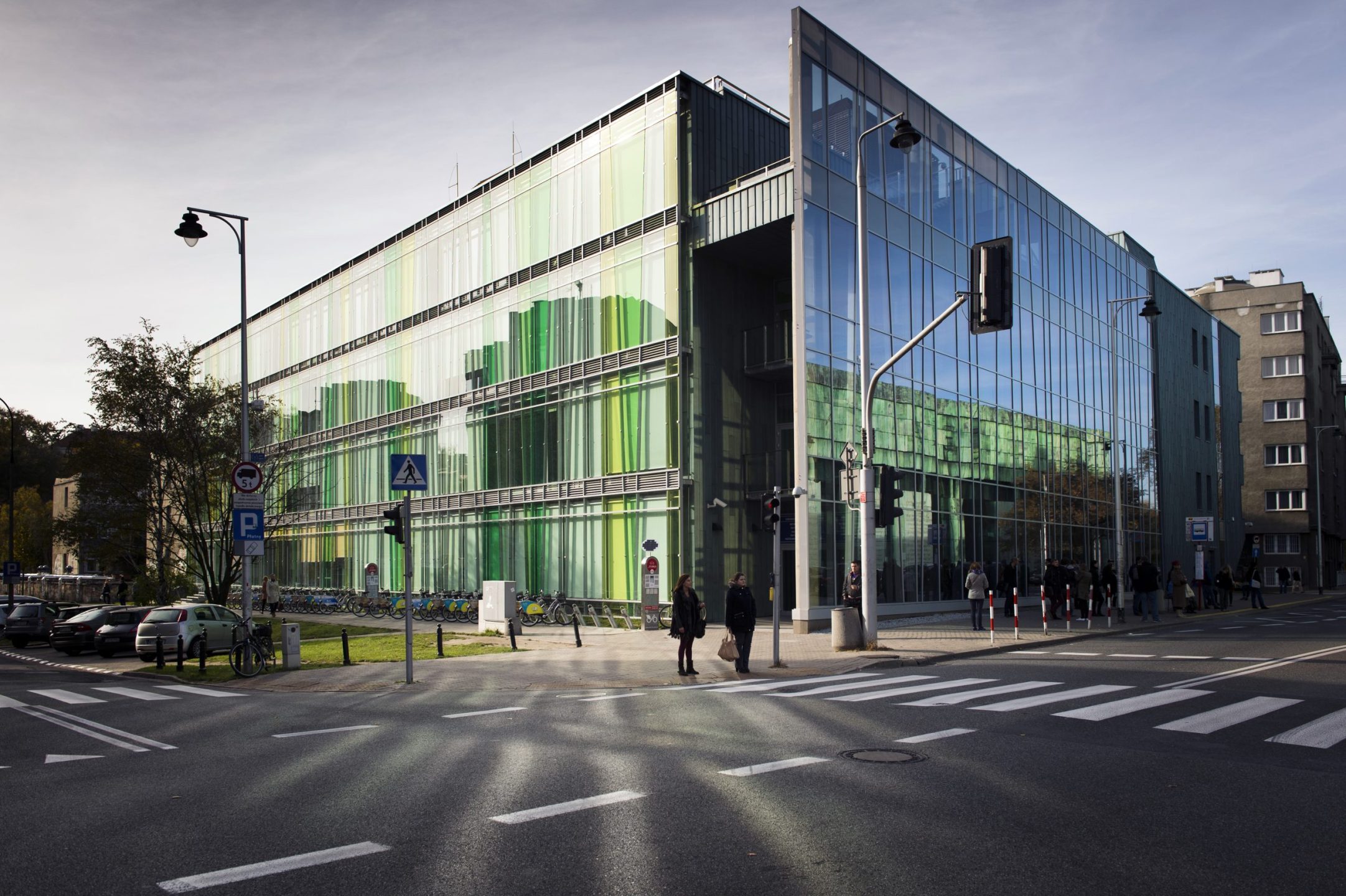Ośrodek Studiów Amerykańskich UW ma zaszczyt zaprosić na polską premierę i zarazem jedną z pierwszych światowych projekcji filmu dokumentalnego “Veer”, artystycznego wywiadu-rzeki w reżyserii Karola Jałochowskiego z udziałem wybitnego amerykańskiego pisarza, Cormaca McCarthy’ego.
Po pokazie zapraszamy na Q&A z reżyserem, które poprowadzi Prof. Paweł Frelik.
Pokaz odbędzie się w czwartek, 15 grudnia o godz. 18:00 w salach 1.007/1.008 (I piętro) na ul. Dobrej 55 w Warszawie.
Projekcja filmu w wersji anglojęzycznej bez napisów. Wydarzenie w języku polskim. Wstęp wolny.
Serdecznie zapraszamy!
2 OZN

Cormac McCarthy
Jeden z najwybitniejszych współczesnych powieściopisarzy amerykańskich. Znany jest z graficznych przedstawień przemocy i unikalnego stylu. W swojej najgłośniejszej powieści, „Krwawy południk”, pisarz bezlitośnie rozprawia się z mitem Dzikiego Zachodu. Ekranizacja „To nie jest kraj dla starych ludzi” w reżyserii braci Coen zdobyła cztery Oscary, zaś za nieszablonową wizję upadku amerykańskiej cywilizacji w książce “Droga” autor otrzymał nagrodę Pulitzera. McCarthy jest postacią tajemniczą, ceni sobie prywatność i niezwykle rzadko udziela wywiadów. Ostatnie 25 lat spędził w położonym w górach Nowego Meksyku Santa Fe Institute zajmującym się formalną analizą złożonych systemów.
Karol Jałochowski
Dziennikarz i reżyser filmów dokumentalnych, między innymi serii dokumentalnej „Pionierzy”. Autor książki „Heretycy, buntownicy, wizjonerzy” (2019). Stypendysta National University of Singapore. Współpracownik Santa Fe Institute (USA). Laureat nagrody Grand Press. Szef działu naukowego Polityki i naczelny portalu Pulsar. Fizyk z wykształcenia.
See the movie trailer below.




